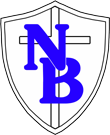Innovators Class - Year 6
Welcome to Innovator's Class
Year 6 'Meet the teacher' information slides.
Dear Innovator Class Parents and Carers,
Firstly, welcome back to a new school year! I look forward to seeing you all on the playground and working with you and your children this year. If you have any questions or worries at all, please do not hesitate to talk to me at the end of the school day.
Our mornings are usually focused on core subjects. However, our timetable can vary day-to-day. Below I have outlined what our focus will be for each subject this term.
In maths, we will focus on understanding place value and properties of numbers up to 10,000,000. We will be looking at the four operations in maths and developing fluency with efficient columnar written methods for addition and subtraction, without and with exchanges. Alongside this we will be building an understanding of how the four operations can be used to manipulate numbers and solve problems.
In writing, we will focus on crafting non-chronological reports linked to our earthquakes topic, ensuring that we consider the appropriate style and form to suit our audience and purpose. Additionally, we will explore recounts, employ effective paragraphing, and select vocabulary and grammatical structures to enhance cohesion and meet the needs of varying writing purposes.
In reading lessons, we will be looking at the text Wonder by R.J.Palacio. This text will enable us to further develop skills such as fluency, inference, retrieval, summarising, comparison, prediction and looking for meaning. As we will be reading this text regularly, the children will become familiar with the story and may want to share this with you at home.
In science, we will be studying the topic of Electricity. This will build upon what we already know about materials that let electricity flow. We will learn more about how to make lights brighter or motors faster in a circuit. We will also understand why we use certain symbols to represent components in a circuit. During this unit we will conduct full investigations using electrical circuits whilst making connections to what we know about electricity in our everyday lives.
In Design Technology, we will examine the mechanics of electronic games, focusing on rotating components and their functionalities. We will review the integration of electric motors into circuits and the drawing of circuit diagrams using recognised symbols. Furthermore, we'll design a game model, incorporating sturdy frameworks and pulleys, while evaluating our designs against specific criteria.
In Art, we will study the artist Claude Monet and be sharing our opinions and interpretations of his work by studying his work and the art movement at the time. We will also be developing our skills using the medium of paint and create a work in his style before evaluating the final pieces.
Our topic this term is Geography focused and we will be answering the enquiry question What are the key aspects of an earthquake? In this topic, we will explore the phenomenon of earthquakes, delving into what happens during such events, how they are measured, and their impacts on communities. Pupils will generate testable geographical questions and investigate these using a variety of sources, including maps, photographs, and case studies, while developing skills in using 6-figure grid references and latitude and longitude.
Our PE days will be Wednesdays and Fridays and children will need their PE kits in school to fully participate in the lessons. We will be covering the Fitness unit where we will develop our speed, stamina, strength, co-ordination, agility and balance. Additionally, we will cover the Basketball unit where we will discover how to dribble when there is pressure, make room, use defensive and shooting methods and put the principles, rules, and strategies into practice during games.
In Spanish, we will be thoroughly exploring phonics through the introduction of essential phonemes. Our curriculum will cover a range of sounds including CH, J, Ñ, LL, RR, as well as others such as CA, CE, CI, CO, CU; GA, GE, GI, GO, GU; and B, V, CC, QU, Z. This systematic and structured approach is designed to enhance our students' pronunciation skills and improve their reading accuracy.
In music, we will engage in warm-up games, vocal exercises, and learn to sing "You’ve Got A Friend" by Carole King. We will also explore other songs, including "The Loco-Motion," "One Fine Day," and "Up On The Roof," culminating in a performance showcasing our learned skills and compositions.
In computing, we will explore designing a complex game featuring a timer and score. We'll study the use of functions, flowcharts for debugging, and options for user input. Additionally, we will examine the implications of location broadcasting in mobile devices and the careful management of personal information in software.
In religion and world views, we will engage with the concept of incarnation, investigating how Christians express their belief that Jesus is God incarnate. We will enquire into the reasons behind this portrayal through biblical narratives, church practices, and aspects of Christian living, while evaluating our understanding of this significant theological concept.
In PSHE lessons, we will be learning about rights and respect. Including working collaboratively, solving friendship problems, assertive skill and acting and behaving appropriately.
Once again, I am thrilled to be working with your children and look forward to building strong working relationships with you all.
Kind regards,
Mr Grech.


Social Media